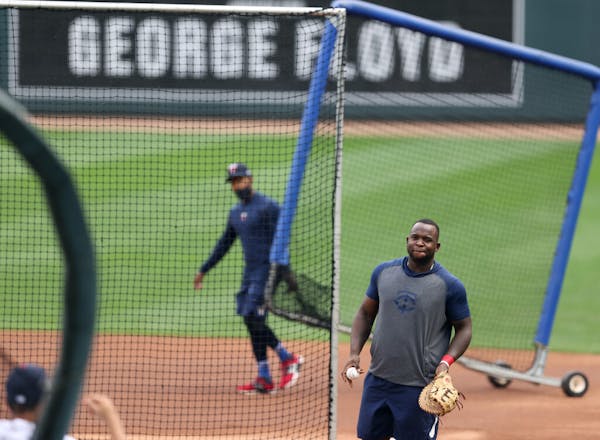First of all, the obvious: Rocco Baldelli would love to be faced with a difficult decision about who to pitch to preserve a lead in the ninth inning. It just doesn't come up too often around here.
No Twins pitcher has taken the mound in a postseason save situation since 2009, after all, and that one — Joe Nathan in Yankee Stadium — didn't go so well. Before that? Nathan converted one for Johan Santana in 2004, the Twins' last playoff win.
But should Baldelli and pitching coach Wes Johnson have the pleasure of summoning a closer to finish off the Astros this week? Even the decision-makers say the aren't certain which button they will push.
"I don't think about the ninth inning, specifically, very often," Baldelli said on the eve of the Twins' 2020 playoff opener. "That's not the way that generally we approach winning ballgames. We have to get through the sixth inning and the seventh inning and the eighth inning before we get to the ninth. And we don't plan backward."
The Twins' track record bears that out. There have been 19 games this season in which the Twins had a lead to protect in the ninth inning (or the seventh inning of a shortened doubleheader game), and Taylor Rogers got the call in 11 of them, blowing the lead only twice. Sergio Romo was on the mound in five of them, and converted all five. Trevor May got two chances, Matt Wisler one, and in each case earned a save.
That's how many MLB bullpens work these days, quite a difference from Nathan's era, when it was almost unthinkable for anyone else to pitch the ninth. And in the Twins' championship seasons, Tom Kelly followed a similar routine: Rick Aguilera picked up five saves in the 1991 ALCS and World Series, and Jeff Reardon did the same in Games 3, 4 and 5 of the 1987 ALCS and Game 7 of the World Series.
It appeared Rogers might enjoy that sort of predictability in his role, too, considering he converted 14 consecutive save opportunities to close the 2019 season. But Rogers hasn't earned a save since Sept. 11, and three of his past four appearances have come in the seventh or eighth innings.
Part of the reason is that Rogers, who retired 12 of the first 13 hitters he faced this season, has given up runs in eight of his 17 outings since then, and he went through a stretch of 11 consecutive innings in which he gave up at least one hit. Johnson responded by working on "tweaking" some things in Rogers' delivery, and said he's excited about the changes.
"These guys aren't robots. When you make that little tweak, there's feel involved, there's confidence, there's everything. We're still going through it, but he's really close," Johnson said. "The adjustments needed to be made. We're doing it as fast as we can, and he's doing a phenomenal job with it."
Choosing a reliever situationally, and not just because he's got a clearly defined role, is a smarter approach, Baldelli said, especially in the postseason. Rogers could be called upon to get a crucial out in the seventh, and May could be asked to strike out a hitter with runners on in the ninth.
"Being really stiff in roles, and only using guys in specific situations is something I want to avoid. I could see us staying fluid in the playoffs, going to the guy we think gives us the best shot to get through each inning," he said. "Including the ninth."
